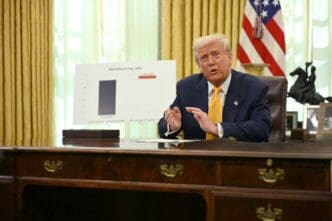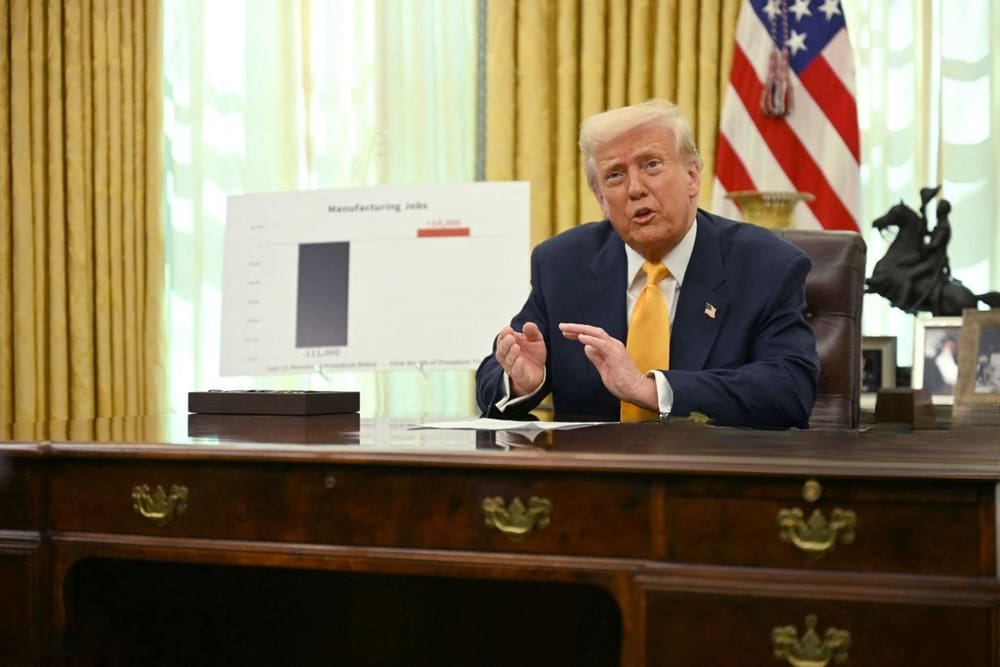President Donald Trump has frequently lauded the resurgence of manufacturing in the United States, highlighting the commitments of various companies to invest significantly in domestic production, ranging from computer chips to automobiles. However, these announcements, while promising, pose the question of why businesses and other nations would choose to invest in the US, which has recently disrupted the global economic landscape.
In a matter of weeks following Trump’s inauguration on January 20, the US transitioned from being a stable economic force and a reliable partner in global trade and security to a source of unpredictability. Ursula von der Leyen, President of the European Commission, captured this sentiment starkly in Germany, stating, “The West as we knew it no longer exists.” This underscores that the US is no longer the sole major player in international trade.
While the US remains the world’s largest economy with a GDP nearing $30 trillion, China follows closely with approximately $18 trillion, and the European Union’s economy is valued at around 17 trillion euros, or about $19 trillion, according to the World Bank. Ngozi Okonjo-Iweala, Director-General of the World Trade Organization, noted in an interview with CNN’s Richard Quest, “US trade accounts for 13% of world trade, meaning 87% occurs among other WTO members.”
Trump has consistently argued that the US has been exploited by other nations, even amid its impressive growth rates. His administration has implemented various tariffs: 25% on aluminum and steel, similar rates on non-compliant Mexican and Canadian goods, a hefty 145% on Chinese imports, and a 25% tariff on cars, with auto parts tariffs forthcoming, along with a general 10% on all US imports. The rapid succession and rollback of tariffs have created a volatile environment for businesses and global economies.
Moody’s Ratings warned in a recent report that “the current tariffs are likely to significantly slow global economic growth, and the erratic policymaking has globally shaken confidence.” Federal Reserve Chair Jerome Powell echoed these concerns at the Economic Club of Chicago, describing the policy shifts as “very fundamental changes” and highlighting the lack of modern precedents to navigate them, causing stock markets to react negatively.
These economic shifts are already impacting major corporations and consumers. From tech giant Nvidia to Boeing, and even shoppers hunting for bargains on platforms like Temu and Shein, the effects are tangible. Meanwhile, China has been expanding its trade relationships to mitigate reliance on the US, with its exports to the US dropping from 19.2% in 2018 to 14.7% in 2024, according to Sheng Laiyun of China’s National Bureau of Statistics. Beijing is also working to strengthen ties with the EU, despite occasional disputes.
President Trump, when questioned about China’s growing connections with US allies, dismissed concerns, asserting, “Nobody can compete with us, nobody.” Nonetheless, other nations are distancing themselves from the US, with some Canadians boycotting travel to the US in response to Trump’s tariff policies. Canadian Prime Minister Mark Carney reinforced ties with Europe, stating, “Throughout our history, Canada and Europe have worked together to strengthen our economies and security.”
Von der Leyen highlighted a growing interest in European trade partnerships, noting, “Everyone is asking for more trade with Europe — and it’s not just about economic ties. It is also about establishing common rules and predictability.” Christine Lagarde, President of the European Central Bank, urged European unity, emphasizing a collective move towards independence.
Source: CNN







